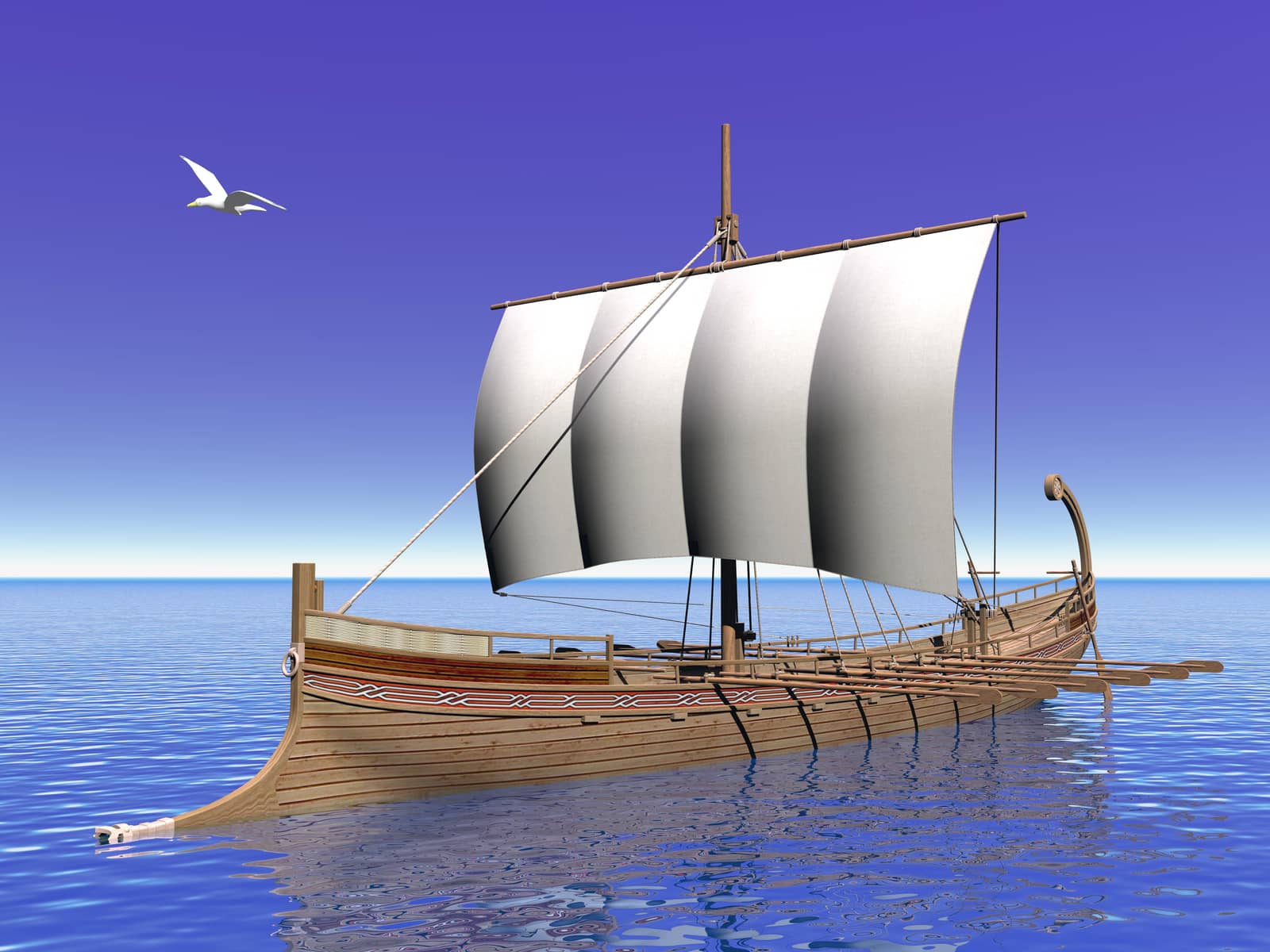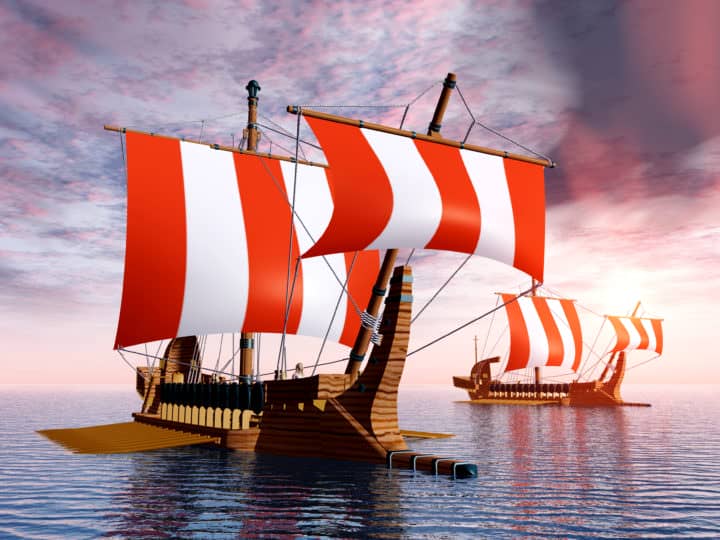 The Battle of Salamis, which took place in 480 B.C., was possibly the single most important naval victory in all of Ancient Greece. In fact, there are those who say that it had a significant impact on how the world evolved over the next 2,500 years because a Persian win instead of a Greek one would have most likely crippled Greek civilization and significantly diminished any affect it may have had on the western world.
The Battle of Salamis, which took place in 480 B.C., was possibly the single most important naval victory in all of Ancient Greece. In fact, there are those who say that it had a significant impact on how the world evolved over the next 2,500 years because a Persian win instead of a Greek one would have most likely crippled Greek civilization and significantly diminished any affect it may have had on the western world.
Spartans Lose the Battle of Thermopylae
After the end of the First Persian Invasion, Pericles, the Athenian general and politician, knew that the Persians would be back. Athens was also sitting on vast silver reserves and Pericles set out to convince the Athenian citizens to spend their resources on fortifying their naval defenses. He proposed that Athens build ships that would be perfectly constructed for battle. The citizens ultimately agreed with Pericles and his plan to fortify the navy was approved.
Ultimately, Pericles was correct – the Persians came back, but this time they tried to invade Greece using a different route. The Spartans squared off with the formidable Persian Army, and the Spartans lost. However, if it weren’t for their sacrifices at the Battle of Thermopylae, the Athenians wouldn’t have had enough time to gather their newly formed navy. Since it took the Persians a lot longer to conquer the pass at Thermopylae, this gave the Athenians plenty of time.
Persians and Athenians Meet at Salamis
The Athenians gathered at Salamis when they learned the Persians had won at the Battle of Thermopylae and they were ready with their ships. Once there, they and other Allied Greek forces focused on defending the Isthmus of Corinth. First, they destroyed the only road that led to it from Athens and walled it off to prevent the Persians from surprising them by arriving at that entrance. From there, the Athenian navy blocked off the passageway that led to Salamis. Their strategy in place, they simply waited.
 Overall, the Greeks were considerably outnumbered by the Persians. However, the Athenians had the advantage of strategy on their side. Their navy was well trained and competent and the trireme boats were especially suited for the naval warfare of the time. The drew the Persians into the cramped waters and surrounded the Persian fleet on all sides, and the Persians had a difficult time maneuvering their boats.
Overall, the Greeks were considerably outnumbered by the Persians. However, the Athenians had the advantage of strategy on their side. Their navy was well trained and competent and the trireme boats were especially suited for the naval warfare of the time. The drew the Persians into the cramped waters and surrounded the Persian fleet on all sides, and the Persians had a difficult time maneuvering their boats.
At this point, the Greeks took advantage, attacking furiously and sinking or boarding a number of Persian ships. While the Persians were losing hundreds of their ships, many of the rest were scattered. As a result, Xerxes, the Persian king who was looking to take over Greece, had to retreat and reassess. Ultimately, after suffering considerably casualties at the hands of the superior battle strategy of the Greeks, the Persians left.
Persians Try to Invade One More Time
However, the Persians weren’t completely gone. A year later, Persian military commander Mardonius recaptured Athens as the Greeks focused their efforts on continuing to protect the Isthmus of Corinth. However, shortly after realizing that Athens had been retaken, they headed there and won a decisive victory at the Battle of Plataea. That combined with a Greek win at the Battle of Mycale about 250 miles to the east destroyed much of the Persians’ strength.
Though the war was won at Plataea, the Battle of Salamis that helped turn the tide in this war in favor of the Greeks and, as many historians believe, allow them to then impact much of the world as it pertains to democracy, personal freedom, philosophy and science. If this battle had gone the other way, the world would most likely be a completely different place. By defeating the Persians, the Ancient Greeks were allowed th
Sources:

